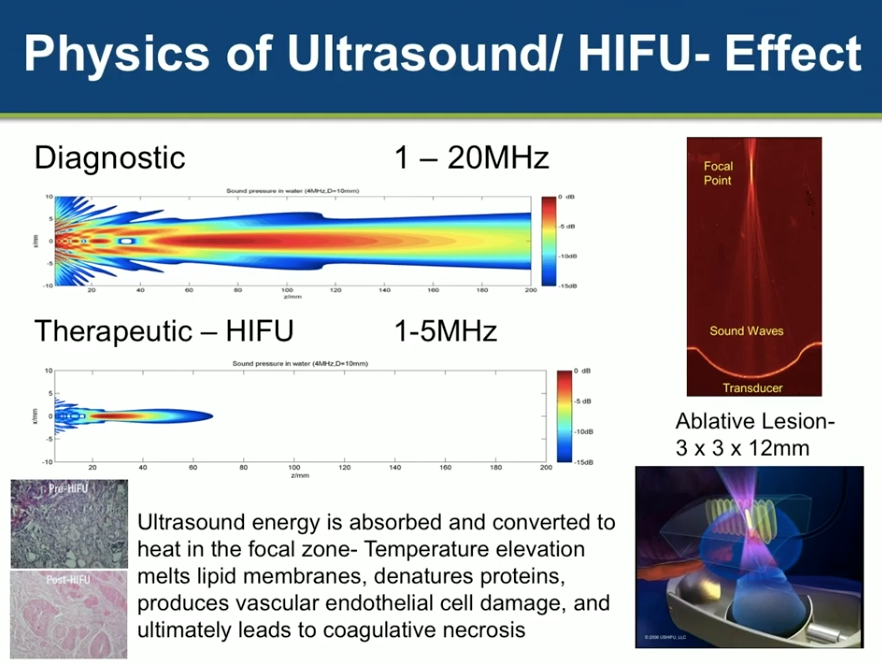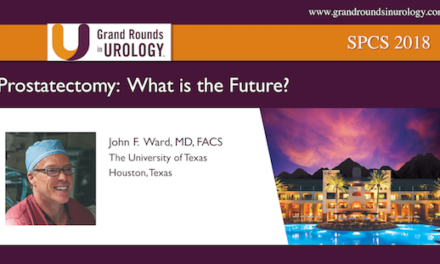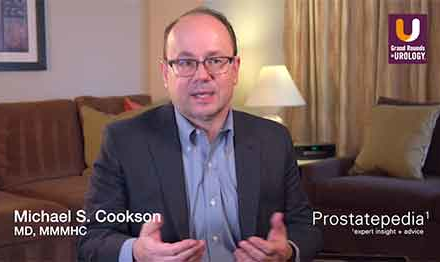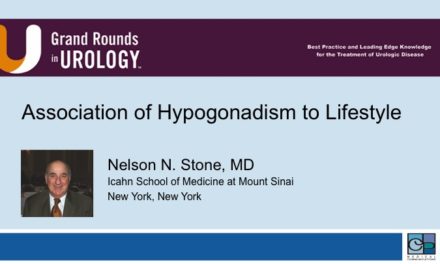Jeffrey A. Jones, MD, presented “The Pros of Focal Therapy for Prostate Cancer” during the 23rd Annual Innovations in Urologic Practice on September 14, 2018 in Santa Fe, New Mexico.
How to cite: Jones, Jeffrey A. “The Pros of Focal Therapy for Prostate Cancer” September 14, 2018. Accessed Jul 2025. https://grandroundsinurology.com/the-pros-of-focal-therapy-for-prostate-cancer/
The Pros of Focal Therapy for Prostate Cancer – Summary:
Jeffrey A. Jones, MD, argues that although radical therapy leads to better oncological control than focal therapy, focal therapy may be more appropriate for certain prostate cancer patients in order to mitigate adverse effects. He examines oncological and quality of life outcomes of localized therapies, specifically cryotherapy and high-intensity focused ultrasound (HIFU).
This is a partner presentation coupled with John W. Davis’s “Prostate Cancer Focal Therapy: Is it the Right Time for your Practice?”
Abstract:
Radical therapy leads to better oncological control than focal therapy, without question. However, this is not the only important outcome of prostate cancer treatment to consider for some patients. An optimal focal therapy will achieve some degree of oncological control, as well as preserve continence and erectile function.
Robotic-assisted laparoscopic prostatectomy (RALP) shows improvement in complications such as blood loss, duration of hospital stay, and postoperative pain compared to open prostatectomy. Despite this, patients treated with this surgical strategy experience post-prostatectomy biochemical recurrence, incontinence, and erectile dysfunction at a significant rate.
A majority of patients with prostate cancer may be candidates for localized disease therapy options. For individuals who are ineligible for RALP, do not wish to remain on active surveillance, or refuse definitive therapy due to fear of side effects, it may be appropriate to consider local treatments, such as cryotherapy and HIFU.
While cryotherapy ablates a target by focal cooling, HIFU ablates a target by producing local heating. HIFU is a relatively new technique, with the two major manufacturers of devices being EDAP TMS and Sonablate. Both cryotherapy and HIFU have improved in their ability to mitigate complications over the years. A study utilizing the Sonoblate system illustrated this improvement in clinical outcomes due to advancements in devices and software. Technologies such as multiparametric MRI and MRI/ultrasound fusion can help to precisely direct focal therapy. Finally, focal therapy can be a salvage option for patients who have failed radiation therapy.
About Innovations in Urologic Practice
Innovations in Urologic Practice (IUP) is an annual CME-accredited conference devoted to updating urologists on the rapidly changing healthcare environment. Topics focus on innovative diagnostic and treatment strategies, controversies, new and currently developing technologies, and challenges in today’s urologic practice. Dr. Jones presented this lecture during the 23rd IUP in 2018. Please visit this page in order to learn more about future IUP meetings.
ABOUT THE AUTHOR
Dr. Jones is a Professor of Urology and Space Medicine at Baylor College of Medicine in Houston, Texas. He is the Chief of Urology in the Operative Care Line of the Michael E. DeBakey Veteran Affairs Medical Center. He is currently a Captain in the United States Navy Reserves and Wing Surgeon for the Fleet Logistics Support Wing. He has previously been the Chief of Urology at Texas Tech University Health Sciences Center, and the Director of Surgical Services at the Southwest Cancer Center in Lubbock, Texas. He has also been a Flight Surgeon at NASA-Johnson Space Center and Crew Surgeon for Space Shuttle and International Space Station astronauts and cosmonauts. Dr. Jones received his BA from Trinity University in San Antonio, Texas, his MS from University of Texas Medical Branch in Galveston, and his MD from Baylor College of Medicine. After 2 years of general surgery, he completed his Urological Surgical Residency at Indiana University in Indianapolis. There, he also performed an AFUD (now Urology Care Foundation) Fellowship in Uro-Oncology. He has authored or co-authored more than 200 peer-reviewed manuscripts and abstracts and several book chapters.





